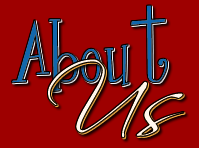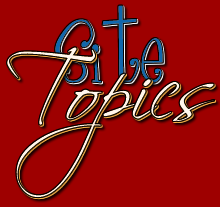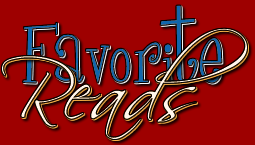Email forwards are a fact of life. All manner of truth or fiction make their way into my inbox. If it’s not Obama and the US flag, then it’s a scare about telemarketers calling our cell phones. Every once in a while an email drops into my inbox with “facts” about the Psalms – Psalm 117 is the shortest chapter in the Bible, Psalm 119 the longest, Psalm 118 the center, and Psalm 118:8 is the center verse. Knowing that I can’t believe everything that I see in email forwards, I googled and came across this, which contains this quote by James Montgomery Boice from his Psalms: An Expositional Commentary (Vol. 3):
“What do you suppose a middle verse should say? Shouldn't the middle verse of the Bible be John 3:16, or its equivalent? Or something from Psalm 23?”
It turns out that Psalm 118 isn’t the center of the Bible, and neither is Psalm 23. I thought that it was a little strange that Boice classed Psalm 23 with John 3:16. After all, John 3:16 is about life and Psalm 23 is generally saved for funerals. However, deeper study reveals that Psalm 23 does not speak of death...it glorifies the Life Giver. Worth taking a look, don’t you think?
Before studying Psalm 23, let’s take a look at the Psalms in general. The transliteration for “psalm” is mizmowr, which can be translated as “melody.” According to the Holman Bible Dictionary, the Psalms are “A collection of songs of praise that are theological statements and poetically represent human dialogue with God.” They were originally set to music and reveal God’s heart for us and a heart for God. Think of them as some of the favorite songs of the Hebrew people.
If you’re like me, you have several favorite songs. As a matter of fact, my current fave depends on my current mood or the occasion. TobyMac provides ideal work-out music (or so I imagine, not having been in a gym in many a moon). A romantic evening with my husband calls for something classical (no words so that we can speak sweet nothings into each other’s ears). And during Bible study, anything written by Shane & Shane helps me to dive into Scripture (those guys are deep!). My iPod holds many playlists for my many moods. After all, I’m a complicated woman. (Ha!)
But men can be complicated, too. Enter David, writer of psalms. As a teenager, David didn’t have the (debatable) luxury of an iPod, so he wrote his own songs. As a matter of fact, 73 of the 150 psalms in the Hebrew Bible, including Psalm 23, are attributed to him.
David enjoyed a reputation as a gifted singer, despite spending his days tending his father’s sheep. His music even provided a king relief from an evil spirit. He reminds me of the young man described in the song “Killing Me Softly”, written by Roberta Flack. The song describes a young man with the ability to make his listeners feel like he’s baring their souls to the world. David achieved the same thing in his psalm writing. Psalm 13, Psalm 32, Psalm 63, and yes, Psalm 23 are just a few of the psalms that tell my life in such a way that I want to look around and see if anyone is watching. They were written thousands of years ago, but they speak to my life right now.
“Now wait just a minute,” you may be thinking. “I’m a busy mom, or a member of a cubicle farm, or a student dreading an upcoming test. I don’t exactly relate to people in the Bible. Shepherds? What do they even do? Is it, like, dirty?”
Questions like these reveal that a culture gap often robs us of the true meaning of Scripture. Take a look at The Twenty-Third Psalm according to the Khmus Tribe of Laos. Now don’t laugh too hard. Our 21st century culture also paints pictures of the 23rd Psalm that are not accurate, relegating it to the dead and dying. But the truth is that it reveals Jesus as our Shepherd, Savior, Provider, Defender, and more.
In the next few Sundays I’d like to scratch away our cultural assumptions and study Psalm 23 from its culture of origination. Please join me in sitting at the feet of David, the shepherd king, as he sings to us about the Shepherd King.
Questions
- What is your favorite song? Why?
- What Psalm speaks to you where you are right now?
- How would you translate Psalm 23 from the point of view of your own culture?






1 comment:
I knew that the Psalms were actually melodies. Too bad they didn't have music notation in those days. It wasn't until the Roman Catholic Church came around with Pope Gregory. I would love to hear the melodies David sung and played his harp to the Psalms' text.
Post a Comment